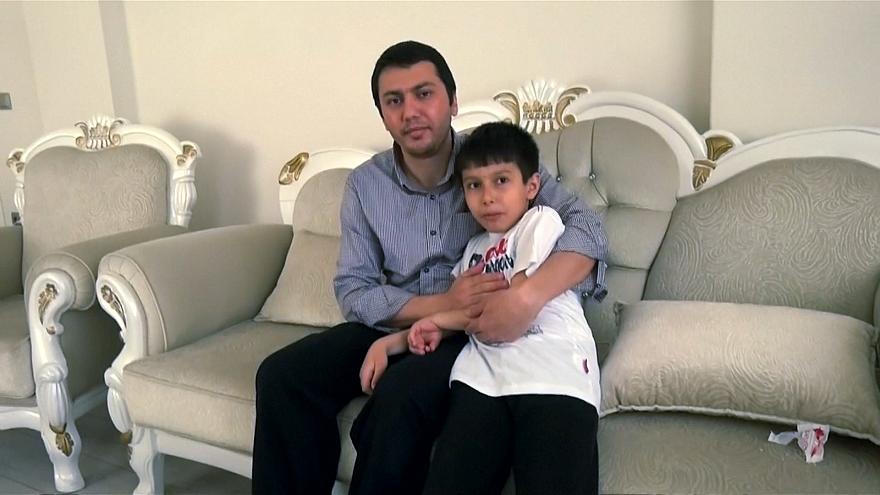Along with the dollar bill, Turkish authorities claimed that Golge’s U.S. passport and his college degree at a Gulen-affiliated university in Turkey proved that he was a Gulenist, despite attending the school on a government scholarship, according to the commission. The Houston Press also reported that his NASA ID card was also used against him as evidence.
The tip, the commission said, came from one of Golge’s relatives who had a dispute with him over a family inheritance: The relative claimed Golge worked as a spy for the CIA.
In fact, Golge worked at Johnson Space Center, where he researched the effects of solar radiation on astronauts in space. He lived in a southwest Houston suburb with his wife and two young children, and had moved to the United States in the early 2000s to study physics at Old Dominion University in Norfolk. Both he and his wife, Kubra, became naturalized U.S. citizens in 2010, according to the Press.
Golge’s detention and that of the other American citizens, including pastor Andrew Brunson, strained the relationship between the United States and Turkey as the State Department worked to secure their release.
Like Golge, Brunson was also accused of aiding terrorism and being connected to Gulen. Amid tense negotiations for his release last year, Trump imposed economic sanctions on Turkey last August, doubling U.S. tariffs on Turkish steel and aluminum. The financial blow came after Erdogan apparently reneged on a deal to free Brunson, as both presidents accused the other of bad faith. Trump eventually lifted the sanctions following Brunson’s release in October.
Trump invited Brunson to the White House that month as his evangelical base celebrated the pastor’s freedom after two years wrongfully imprisoned. But so far Golge’s release has been less high-profile.
State Department spokeswoman Morgan Ortagus announced Golge’s release at a press briefing Wednesday, saying, “We will continue to provide all appropriate consular services to Mr. Golge, including making sure he can return home as soon as possible.” But she said she could not share any further details.
Trump said Thursday that he and Erdogan “dealt with” Golge’s release, and that “it was great.” But he did not name Golge throughout his brief comments.
“They released this prisoner, hostage — whatever you want to call him,” Trump said. “He’s at home custody, in Turkey. He’ll be released fairly soon, so that’s good news.”
A White House spokesman confirmed Trump was referring to Golge, but did not answer questions related to Trump’s phone call with Erdogan or the terms of Golge’s release, referring questions to the State Department. The State Department did not immediately respond to a request for comment late Thursday.
It’s unclear how long Golge must remain on probation in Turkey, where his wife and children live, or if U.S. officials can negotiate a swifter return. He told NBC News he must check in with local police three times per week.
“The only thing I want right now is to be able to go back to the United States and start working at NASA again as a scientist,” he said.
Source: Omaha



